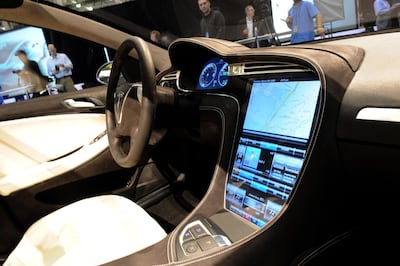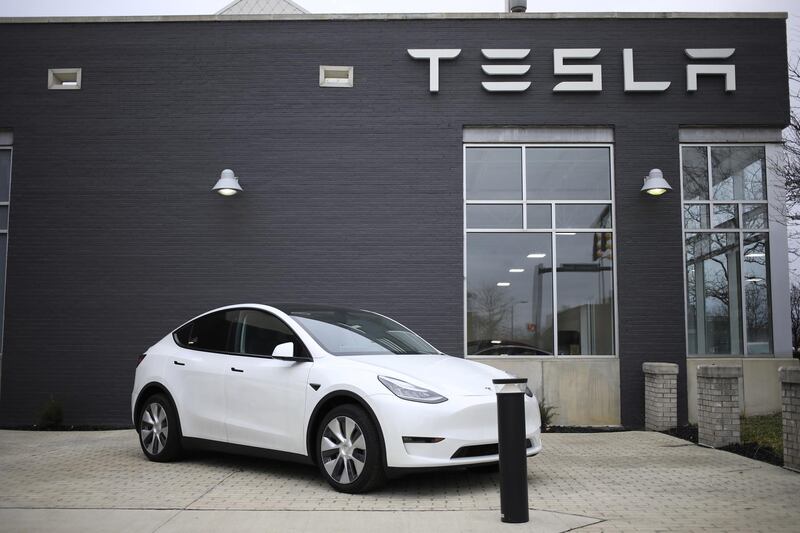The National Highway Traffic Safety Administration in the US has asked electric vehicle manufacturer Tesla to recall 158,000 units of its Model S and Model X cars over media control unit (MCU) flaws that could potentially increase the risk of accidents.
The US federal government agency said the 2012-2018 Model S and 2016-2018 Model X vehicles contain a "defect related to motor vehicle safety”.
"The failure rate in this investigation is significantly greater than the failure rate for vehicles [of other manufacturers] involved in prior recalls involving similar behaviour," the NHTSA said in a letter sent to Tesla.
The MCU displays the rear-view camera image and provides the driver with a touchscreen display to control the car's heating, ventilation and air-conditioning systems.
“During a MCU failure, the screen becomes black, and a rear-view/back-up camera image is no longer available to the driver. If this image is not available, the risk of crash increases … potentially causing injury or death,” the NHTSA said.

“The touchscreen display will appear as a black screen and the vehicles will not have a functioning windshield defogging and defrosting system … it may decrease the driver’s visibility in inclement weather, increasing the risk of crash,” it added. Tesla did not immediately respond to a request for comment.
The failure also has an adverse effect on the autopilot advanced driver assistance system and on the turn signal functionality due to the possible loss of audible chimes, driver sensing and alerts associated with these vehicle functions.
The Office of Defects Investigation of the NHTSA began its investigation in June last year. The probe was upgraded to engineering analysis, which covers almost 158,000 Tesla vehicles, in November.
The NHTSA said Tesla implemented several “over-the-air updates” in an attempt to mitigate some of the issues, but they are “procedurally and substantively” insufficient.
It has asked Tesla to submit its response by January 27. If the car maker decides not to execute the requested recall, it must provide the agency with a full explanation of its decision, including any additional analysis of the problem beyond Tesla’s past presentations.
Tesla delivered 57,039 units of Model X and Model S, almost 11 per cent of its total handovers, last year. The company produced 442,511 units of the Model 3 and Model Y last year.







